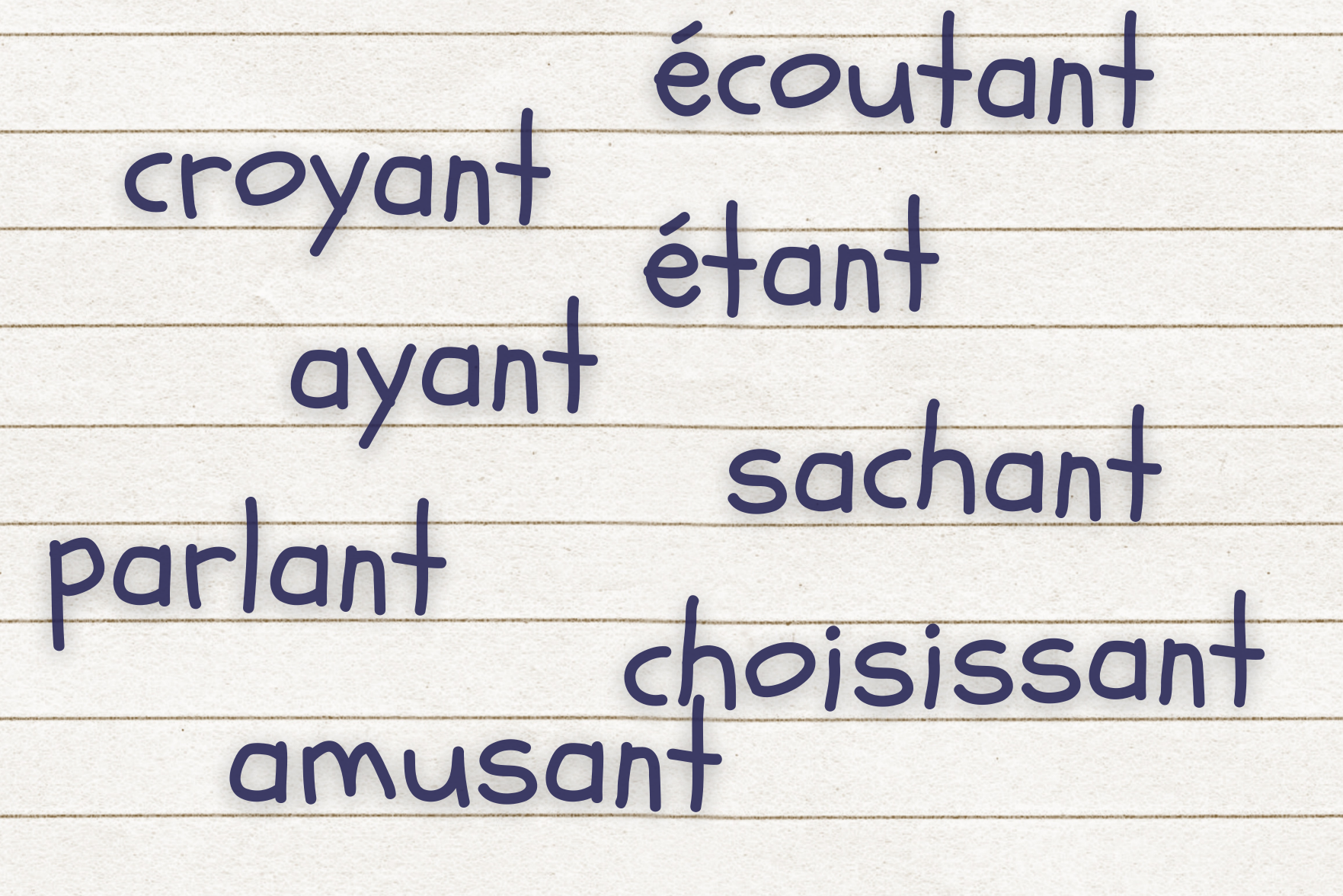French present participles
Posted by Josh on 24th Nov 2025 in the blog in the french grammar category
What is a present participle?
A present participle (participe présent in French) is the -ant form of a verb, similar to the -ing form in English.
How to form the present participle in French
In French, the present participle always ends in -ant, regardless of which group a verb belongs to.
Here are three steps you should take to form the present participle for any verbs in French:
- take the first person plural (nous) form of the verb in the present tense
- remove -ons
- add -ant
Examples:
marcher - (nous) marchons - march - marchant
choisir - (nous) choisissons - choisiss - choisissant
prendre - (nous) prenons - pren - prenant
However, there are three irregular present participles that don't follow this rule. For these verbs, you should learn the present participles off by heart.
(be) être - étant(have) avoir - ayant(know) savoir - sachant
When to use the present participle in French
1. As a verb
Examples:
Il a annulé la réunion, croyant bien faire. ('He cancelled the meeting, thinking he was the right thing to do.')
Possédant toutes les qualités requises, elle a décidé de présenter sa candidature. ('Possessing all the required qualities, she decided to apply.')
Nous avons vu Paul parlant avec le maire. ('We saw Paul talking to the mayor.')
Note that when we use a present participle as a verb in French, the form never changes.
2. As an adjective
In this case, the present participle must agree in gender and number with the noun it describes.
Examples:
Ces livres sont passionnants. ('These books are fascinating.')
Il raconte des histoires amusantes. ('He is telling amusing stories.')
Elle a déménagé l’année suivante. ('She moved the following year.')
If you're unsure whether a present participle is an adjective, try replacing it with a normal adjective. If the sentence no longer makes grammatical sense, then it isn't an adjective.
3. As a gerund
We use the gerund (gérondif in French) when we want to describe two or more actions happening simultaneously.
When we want to use a present participle as a gerund in French, we use the preposition 'en'. Note that the form of the present participle doesn't change.
Example:
Elle travaille en écoutant de la musique. ('She is working while listening to music.')
We can use the gerund to describe a causal link between the main and subordinate clauses.
Example:
En participant à cette formation, nous avons acquis de nouvelles compétences. ('By taking part in this training, we learned new skills').
A note on compound participles
Note that you can use a compound participle to talk about an action happening before another action. It is formed of the present participle of être or avoir followed by the past participle of the conjugated verb.
Example:
Ayant terminé son travail, il est rentré chez lui. ('Having finished his work, he went home.')
A note on the present progressive form
In English we sometimes use the present participle to express something in the present continuous.
However, we never do this in French. You would either use the present tense or the expression être en train de to denote that an action is happening right now.
Example:
'I am writing a letter' - J’écris une lettre. / Je suis en train d’écrire une lettre.
Want to learn more about present participle in French? Check out Lesson 20 of The Complete French Course.
Check out some of our other blog posts!
How France influenced Independence Day
Posted on by Josh in the french culture categoryDiscover the less known history of France's involvement in the American War for Independence
Read moreWhy the funny paint names?
Posted on by Adam in the misc. categoryFancy paint names have never been so fashionable nowadays but do paint industries think of us when they ask us to remember which colour is 'Je m'appelle Missy' or 'Bonjour!'? Put it this way, I can only say that my 50 shades of grey searching was not as exciting as the book (unfortunately, wink, wink).
Read moreHave fun learning French Today
People from all over the world enjoy learning French with Alexa Polidoro’s popular French audio and video lessons.



